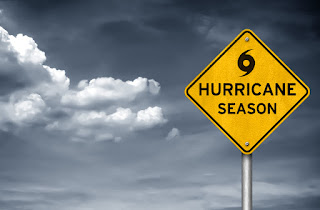Long Island has had its fair share of hurricanes in the past. During the summer and early fall, we’re no stranger to the dangerous conditions that the Atlantic can blow in. However, every year, these storms change. Meteorologists do their best to predict what each season will look like, how intense it will be, and just how many actual hurricanes the east coast will experience.
So, we’re here to break down 2022’s hurricane season predictions and what you need to know to protect your family and home.
What You Need to Know About Hurricanes
A hurricane is a tropical cyclone that develops over warm ocean waters. Tropical cyclones have winds that reach at least 74 miles per hour (mph) and measure at least 74 miles across. Even though they start small, they can grow into massive storms within just 24 hours! As these storms move over land or water, they lose energy due to friction with their surroundings.Hurricanes are dangerous, unpredictable, and cause millions of dollars worth of damage each year. If you live in an area prone to storms, it’s important to know what to do when one is approaching. It’s also important to be prepared for a hurricane before it hits.
This Year’s Hurricane Predictions
Forecasters foresee that this year’s hurricane season will again be above average — making it the seventh above-average season in a row. According to the National Oceanic and Atmospheric Administration Climate Prediction Center’s 2022 Atlantic Hurricane Season forecast, “There is a 65% chance of an above-normal season, a 25% chance of a near-normal season, and a 10% chance of a below-normal season.”There’s a chance for 14-21 named storms, with 6-10 of those possibly becoming hurricanes and 3-6 of them becoming major, damaging hurricanes.
How To Minimize Flood Damage in the Home
Hurricanes can do a bunch of damage, from fallen trees to electrical outages. But, sometimes, the worst damage to a home can be flooding. You can do many things before and during a hurricane to minimize flood damage in your home. Consider:- Checking your insurance policy: You might want to check with your insurance company ahead of time because there may be coverage that applies specifically to hurricanes.
- Remove valuables: Get any valuables and important papers up off floors that could flood in less than 10 minutes and place them on a high shelf or even another room if possible so they won’t get ruined if water does come in unexpectedly.
- Put down sandbags: If you don’t have shutters, consider putting down sandbags to help protect your home from flooding.
- Keep doors closed: It can be tempting to open doors during storms, but it is best not to do so unless necessary because it will make your home more susceptible to flooding.
- Contact a water damage expert: At the first sign of water damage, it’s essential to contact the professionals to take care of it!


.jpg)

